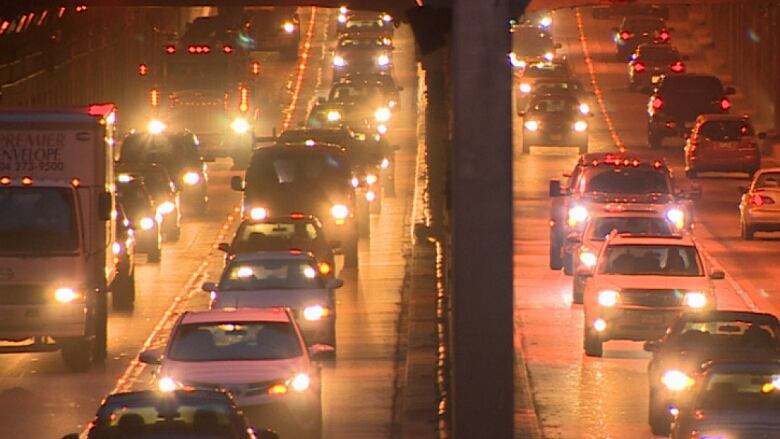Vancouver city council adopts traffic congestion plan
Council authorizes $3.3 million for traffic data collection and monitoring using smart technology

Vancouver is one of only a few cities in Canada to adopt a traffic congestion plan in the hopeof improving travel time, reliability and safety for drivers and transit users, according to the city.
Council approved $3.3 million Tuesday in both new investment and existing fundsunder the city's Transportation 2040 plan, where city staff will track progress and report back annually.
"Vancouver's economy is booming, and with it, so are the demands on our streets and sidewalks," said Mayor Gregor Robertson in a news release on Tuesday.
He added the traffic congestion plan is the latest of several initiatives the council has adopted to improve transportation options and road conditions.
The new reportputs forward five goals to support congestion management:
- Improving monitoring traffic conditions and trends.
- Improving road safety.
- Ensuring a smart and efficient transportation system.
- Co-ordinating street use.
- Prioritizing the movement of people and goods.
Data collection
More and more people are using bike lanes and walking to get around, leading to slower traffic and busier sidewalks and crosswalks, said the report, adding there is limited physical space in the almost built-out city.
The city says mobile apps can also be used to gather information on how citizens use and interact with the transportation system, which the city said is vital to help officials make informed decisions.
New smart street lighting tech equipped with readers is allowing cities to gather large volumes of data, such as traffic volumes, travel speeds and modes of travel for all road users, the report added.
The city saysmobile appsmay also allow users to share crowd-sourced traffic data from phone sensorsand planfor driverless cars in the future.
Walking and cycling is the priority
To accommodate growth, the city is prioritizing walking, cycling and transit which may result in slower speeds overall but "measures can be put in place to maintain travel time reliability," said the report.
Continued reliability of the arterial roadwaysis critical, said the report, with the goal of reducing traffic on neighbourhood streets and keeping it on main roads.
"Whether you're in your car, on the bus, biking downtown or waiting to cross the street, congestion and traffic delays are frustrating," Robertson said.
"We want to reduce that frustration and keep people moving by being on the cutting edge of smart technology to improve traffic flow no matter how you get around."












_(720p).jpg)


 OFFICIAL HD MUSIC VIDEO.jpg)
.jpg)



























































































